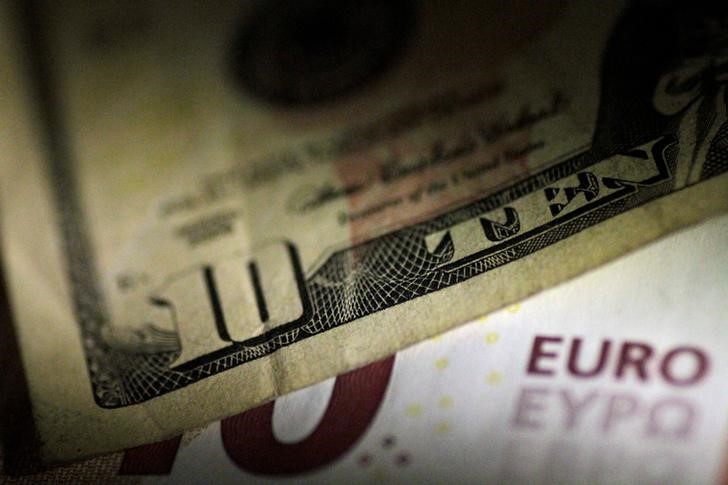By Gina Lee
Investing.com – The dollar was down on Tuesday morning in Asia, while geopolitical tensions over Ukraine weighed on the euro. However, the debate on how aggressively the U.S. should hike interest rate capped the dollar’s losses.
The U.S. Dollar Index that tracks the greenback against a basket of other currencies edged down 0.15% to 96.210 by 12:29 AM ET (5:29 AM GMT).
The USD/JPY pair edged down 0.19% to 115.31.
The AUD/USD pair edged down 0.15% to 0.7115, while the NZD/USD pair inched up 0.02% to 0.6616.
The USD/CNY pair inched down 0.05% to 6.3542, while the GBP/USD pair inched up 0.06% to 1.3535.
The euro was at $1.1308 in early Asian trading, after hitting $1.1278 the day before, its lowest in a week-and-a-half. With moves also cautious elsewhere, the dollar was just below a two-week high hit on Monday.
Ukrainian President Volodymyr Zelenskiy on Monday called on citizens to fly the country's flags from buildings and sing the national anthem in unison on Feb. 16, the ate when some Western media have predicted a possible Russian invasion. The comments spooked investors, but the comments were meant to be “sarcastic,” according to Zelenskiy’s office.
Meanwhile, U.S. Federal Reserve officials continue to argue over how aggressively to begin upcoming interest rate hikes at their March meeting. St. Louis Fed President James Bullard, who called for a large 50 basis point increase in the previous week, repeated calls to hike interest rate faster on Monday.
However, Bullard’s colleagues were more cautious in their remarks, and the Fed will also release the minutes from its latest meeting on Wednesday. The Reserve Bank of Australia released the minutes from its own meeting earlier in the day.
Tensions in Ukraine and the more aggressive outlooks for the Fed funds rate are both supportive for the dollar in the near term, Commonwealth Bank Of Australia senior currency strategist Kim Mundy.
"Your best bet for seeing which is having a greater impact is to look at USD/JPY and we have seen that trading a little bit weaker in the last day or two, which suggests markets are very conscious of what's happening on the Ukraine border. We just have to keep watching the headlines and see what happens," she added.
The safe-haven yen is usually a beneficiary of runs towards safety, while the Bank of Japan’s dovish monetary policy compared with the U.S. policy is likely to push the yen even lower. The Japanese central bank said during the previous week that it would buy an unlimited amount of 10-year government bonds at 0.25%. However, investors did not test this 0.25% line on Monday.
The Russian rouble remained volatile but strengthened overall on Monday. It weakened again slightly during the Asian session.
